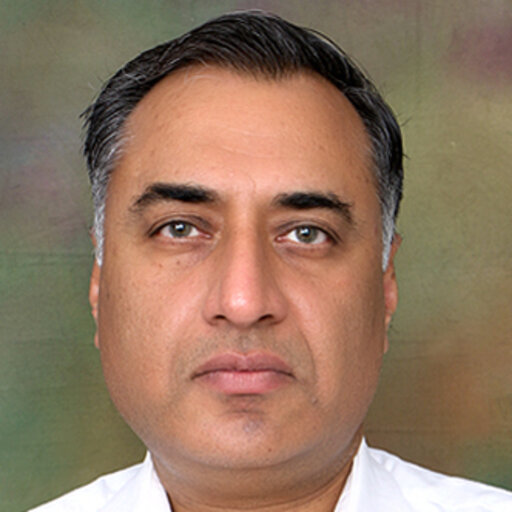
Dr. Anil Kumar Angrish

Kanika Sharma
Environmental, Social and Governance (ESG) factors have become important pillars which shape the perception of companies among stakeholders especially investors. ESG has become an important metric in addition to traditional metrics of any company’s financial performance. ESG encompasses multiple non-financial parameters which support decision-making for issuers and investors. Investors are able to measure and monitor ESG risks in their portfolio. Additionally, investors can identify investment opportunities by taking into account the long-term sustainability of businesses. The term, ‘ESG’ has become popular now but it was coined in 2004 by the United Nations Global Compact. The term, ‘ESG’ appeared in a report titled, “Who Cares Wins: Connecting Financial Markets to a Changing World”. Much earlier than that, Socially Responsible Investing (SRI) gained momentum in the 1970s. By 1990s, ESG considerations started becoming an integral part of mainstream investment strategies. John Elkington made significant impact in this domain through his popular wok – “Cannibals with Forks: The Triple Bottom Line of 21st Century Business” (1997) in which he cited the 3P Program, i.e., “Pollution Prevention Pays” of 3M that he read in the work of Michael Royston with the same title – Pollution Prevention Pays. But later on, John Elkington became known for his own 3Ps, i.e., People, Planet and Profit.
Multiple standards and frameworks exist for corporate entities to adopt in crafting their sustainability reports. Global Reporting Initiative (GRI) which was established in 1997 offers a comprehensive set of reporting standards. The GRI Standards have been organized into three universal categories namely economic, environmental and social. Carbon Disclosure Project (CDP), established in the year 2000, operates globally as an international ‘non-profit’ entity. CDP comprises CDP Worldwide Group, CDP North America, Inc., and CDP Europe AISBP which are overseen by their respective boards of trustees and directors. It claims to possess the world’s largest environmental database. Scoring System evolved by the CDP reflects the journey which companies undertake towards ‘environmental stewardship’, traversing through stages of disclosure, awareness, management, and ultimately, leadership. Further, each level signifies a progression towards ‘deeper engagement’ and ‘responsibility’ in addressing environmental challenges.
Equator Principles (formulated in June 2003) which are ten in number, intend to serve as a common baseline and risk management framework for financial institutions to identify, assess, and manage environmental and social risks when financing projects. In early 2005, on the initiative of Kofi Annan, the then United Nations Secretary General, a consortium of the world’s foremost institutions investors, was convened with the stated objective of formulation of the ‘Principles for Responsible Investment’ (PRI). PRI initially comprised a 20-member investor cohort from institutions from 12 nations. Later on, it comprised experts from investment sector, civil society and inter-governmental bodies. The PRI has been endorsed by the United Nations, and it encourages investors to integrate ESG considerations into investment strategies.
ISO 26000 was launched in 2010 after a comprehensive five-year negotiation process involving stakeholders worldwide, and it is globally recognized standard crafted to guide organisations in effectively evaluating and fulfilling their social responsibilities pertinent to their core mission and vision, operational frameworks, diverse stakeholders, and environmental impacts. Sustainability Accounting Standards Board (SASB), established in 2011, as a non-profit entity, serves the purpose of fostering a mutual understanding between businesses and investors concerning the financial implications of sustainability. The SASB standards comprise a set of 77 industry-specific sustainability accounting standards. Entities are expected to divulge information regarding sustainability-related risks and opportunities. These disclosures are aimed at potentially impacting the entity’s ‘cash flows, ‘access to finance’, or ‘the cost of capital’ across short, medium, or long-tem horizons. The SASB Standards cover ‘Sustainability Disclosure Topics & Metrics for Biotechnology Industry’ thereby emphasising on ‘Safety of Clinical Trial Participants’, ‘Access to medicines’, ‘Affordability and Pricing’, ‘Drug Safety’, ‘Counterfeit medicines’, ‘Ethical Marketing’, ‘Employee Recruitment, Development and Retention’, ‘Supply Chain Management’ and ‘Business Ethics’. These are real concerns of any pharmaceutical business entity.
In 2015, the United Nations introduced the Sustainable Development Goals (SDGs) which are commonly referred to as the Global Goals, and aim at mobilizing global efforts towards eradicating poverty, safeguarding the environment, and fostering universal prosperity by 2030. SDGs owe their origin to the Millennium Development Goals (MDGs), i.e., eight international development goals which were to be achieved by 2015, as established guiding principles at the Millennium Summit hosted (in New York) in the year 2000 by the United Nations. Certain SDGs have direct implications for pharmaceutical sector which include ‘Good Health and Well-being’, ‘Quality Education’, ‘Gender Equality’, ‘Clean Water and Sanitation ‘, ‘Affordable and Clean Energy’, ‘Decent Work and Economic Growth’, ‘Reduced Inequalities’, ‘Responsible Consumption and Production’, ‘Climate Action’, and ‘Partnerships for the goals’.
The Securities and Exchange Board of India (SEBI) as the regulator for equity markets took proactive steps to enhance ESG disclosures within the corporate sector, and introduced a novel reporting framework – the Business Responsibility and Sustainability Report (BRSR). In the fiscal year 2021-22, it was implemented on a voluntary basis. From 2022-23 onwards, it was made mandatory by the SEBI for the top 1,000 listed entities (based on market capitalization). The BRSR fosters transparency and accountability among listed companies.
Table 1:- ESG Frameworks explicitly cited by Top 10 Pharmaceutical Companies in India in their Annual Reports (2022-23)
| Name of the Company | Number of ESG Frameworks followed (Out of 8) |
| Sun Pharma | 5 |
| Cipla | 3 |
| Dr. Reddy’s Labs | 5 |
| Zydus Lifesciences | 4 |
| Divi’s Labs | 3 |
| Mankind Pharma | 1 |
| Torrent Pharma | 4 |
| Lupin | 5 |
| Alkem Labs | 4 |
| Abbott India | 5 |
Source: Compiled from Annual Reports of listed pharmaceutical companies
All top listed pharmaceutical companies provided the Business Responsibility and Sustainability Report (BRSR), as it is mandatory for the top 1,000 listed companies. Except Mankind Pharma, other top nine pharmaceutical companies explicitly mentioned the United Nations’ Sustainable Development Goals (SDG) as ESG framework applied. Eight pharmaceutical companies except Divi’s Labs and Mankind Pharma, followed the Global Reporting Initiative (GRI) framework. Fourth most popular ESG framework for pharmaceutical companies is Sustainability Accounting Standards Board (SASB) as it has been followed by seven pharmaceutical companies except Cipla, Divi’s Labs, and Mankind Pharma. Fifth most popular framework followed by top ten pharmaceutical companies in India is Carbon Disclosure Project (CDP) which is followed by Sun Pharma, Dr. Reddy’s Labs, Divi’s Labs, Lupin and Abbott India.
As observed from annual reports for the year 2022-23, these top pharmaceutical companies are providing the Business Responsibility and Sustainability Report (BRSR). Over and above the mandatory requirement, these companies are also following globally accepted ESG frameworks such as UN SDG, GRI, SASB and CDP. Reporting by these pharmaceutical companies on these standards in their Annual Reports is reflected in the ranking of these companies by the S&P Global ESG Score that has been given in the Table 2.
Table 2:- S&P Global Scores of top Pharmaceutical Companies and Ranking (2023)
| Company | S&P Global ESG Score | Ranking (based on ESG Score) |
| Dr. Reddy’s Labs | 78 | 1 |
| Cipla | 70 | 2 |
| Lupin | 69 | 3 |
| Sun Pharma | 68 | 4 |
| Zydus Lifesciences | 62 | 5 |
| Torrent Pharma | 33 | 6 |
| Divi’s Labs | 29 | 7 |
| Alkem Labs | 26 | 8 |
Source: Compiled from the S&P Global
S&P Global ESG Score breakdown has three components – Environmental, Social and Governance & Economic, and ESG Score as given in Table 2 can be seen in the light of the fact that Industry Mean and Industry Max was 23 and 90 respectively for the component – Environmental for which DRL had the score of 76. For Social, DRL had the score of 77 whereas Industry Mean and Industry Max stood at 31 and 87 respectively. And on Governance & Economic, DRL had 79 Score for which Industry Mean and Industry Max stood at 33 an 82 respectively. In the Methodology Year 2003, the S&P Global ESG Score has incorporated question-level scores based on modelling approaches in the absence of disclosure.
In Indian context, the Securities and Exchange Board of India (SEBI) amended existing Securities and Exchange Board of India (Credit Rating Agencies) Regulations, 1999 in July 2023. Through these amendments, it introduced Chapter IV A on ESG Rating Providers (ERPs). It defined ‘ESG Ratings’ as the rating products that are marketed as opinions about an issuer or a security, regarding the ESG profile or characteristics or exposure to ESG risk, governance risk, social risk, climatic or environmental risks, or impact on society, climate and the environment, that are issued using a defined ranking system of rating categories, whether or not these are explicitly labelled as “ESG ratings”
Credit rating agencies in India recognized the potential of ESG ratings, and launched ESG rating services. Prominent rating agency – ICRA Limited had announced in September 2023 about its application in the name of Pragati Development Consulting Services Limited (PDSCL), and statutory approvals were sought for the change in the name to ICRA ESG Ratings Limited. PDSCL, wholly-owned subsidiary of ICRA Limited received the SEBI registration under the SEBI (Credit Rating Agencies) Regulations in April 2024. Most recently, the SEBI approved CRISIL ESG Ratings & Analytics Limited, a wholly owned subsidiary of CRISIL Ratings Limited as a Category 1 provider of ESG Ratings in April 2024. It is not that CRISIL ESG Ratings was not doing ESG related work earlier. In 2021, CRISIL launched ESG ‘scoring’ business, and over a period, it expanded the coverage to 1,000 companies across 65 sectors. Approval to CRISIL ESG Ratings & Analytics acknowledged the necessity of financial markets for independent ESG ratings.
With more ESG Rating Providers catering to requirements of companies from different sectors, ESG reporting by pharmaceutical companies is likely to improve in future. Complexity of the value chain in case of a pharmaceutical company is likely to put intense pressure on Indian pharmaceutical companies. In near future, it is going to be tough for those pharmaceutical companies from India which operate in Europe and the United States. In the EU, non-EU companies doing business there, have to make disclosures under the Corporate Sustainability Reporting Directive (CSRD) as the European Commission adopted the CSRD in November 2022. In Indian context too, the SEBI has become proactive through introduction of ESG Reporting through BRSR and approvals to ESG Rating Providers.
Dr. Anil Kumar Angrish, Associate Professor (Finance and Accounting),
Department of Pharmaceutical Management, NIPER, SAS Nagar (Mohali), Punjab
Kanika Sharma,MBA (Pham.), Department of Pharmaceutical Management, NIPER, SAS Nagar (Mohali), Punjab
Disclaimer: Views are personal and do not represent the views of the Institute.





